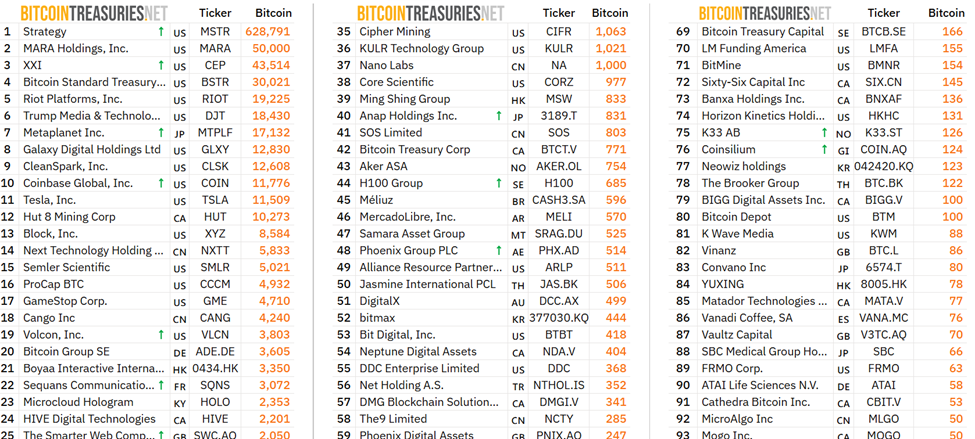Summary
Coinbase continues expanding its digital asset portfolio—not just with cryptocurrencies, but now with tokenized stocks. This move brings traditional equity exposure onto the blockchain, opening up new opportunities for users to trade fractional shares of major companies seamlessly via crypto wallets.

📈 What Are Tokenized Stocks?
Tokenized stocks are digital representations of shares issued on a blockchain. Each token mirrors a single share of a traditional equity like Apple, Tesla, or Amazon. Behind the scenes, licensed custodians hold the actual shares, while tokenized versions circulate on the blockchain, allowing trading 24/7 without traditional market hours.
This model blends conventional equity exposure with crypto-native features: instant settlement, fractional ownership, and blockchain verifiability.
🌍 Why Coinbase Is Entering This Space
Coinbase’s tokenized stock products offer several strategic advantages:
- Extended access: Users can trade stock-related tokens at any time, not just during stock market hours.
- Fractional ownership: Even investors with small amounts can access high-priced stocks.
- Lower barriers: No brokerage account required—wallet holders can engage with stock tokens as easily as tokens like Bitcoin or Ethereum.
- Enhanced liquidity: Trading directly on-chain may reduce settlement delays and tradable volume inefficiencies.
By bridging equity markets with digital wallets, Coinbase positions itself as a hybrid platform—uniting crypto trading and traditional finance.
✅ How It Works: Trading Tokenized Stocks on Coinbase
- Custody Setup: Coinbase partners with regulated entities to hold actual shares behind the tokens.
- Token Minting: Tokens are issued proportional to real shares (e.g., one token = one share).
- Wallet Transfers: Users trade these tokens through Coinbase Pro, Coinbase Wallet, or compatible DeFi platforms with no traditional broker needed.
- Settlement via Blockchain: Trades settle on-chain instantly or within minutes, bypassing traditional T+2 delays.
- Redemption: There may be mechanisms to redeem tokens for actual shares or cash in fiat, depending on the provider’s rules.
🚀 Benefits for Retail and Crypto Investors
• Accessibility
Trading tokenized stocks removes geographic and regulatory barriers—for example, offering exposure to US large caps even from countries without access to traditional brokerages.
• Financial Inclusion
With fractional tokens and low fee structures, more people gain access to equity ownership, regardless of investment size.
• Speed and Flexibility
Token transfers and trading happen rapidly on-chain, offering greater agility than traditional markets.
• Unified Portfolio
Investors can hold crypto assets and stock tokens in the same wallet, facilitating consolidated portfolio tracking and potentially better diversification.

⚠️ Key Risks to Consider
• Regulatory Risk
Tokenized equities aren’t widely regulated yet. Legal frameworks continue evolving—especially when tokenized stocks circulate across borders.
• Custody Trust
Token holders must rely on token issuers and custodians to genuinely back each token. Transparency and auditing are essential.
• Liquidity Limitations
While trading is available 24/7, deep liquidity (especially for large trades) may be thinner than established exchanges.
• Redemption Complexity
Not all providers support converting tokens back to actual shares; yes/no access may be restricted based on location and rules.
💡 Coinbase vs. Alternatives
Several crypto-native platforms and decentralized protocols are experimenting with tokenized equities. However, Coinbase stands out due to:
- Established brand and compliance pedigree
- Strong fiat on/off-ramps
- Institutional-grade security infrastructure
- Wide geographical reach and regulatory transparency
These factors give Coinbase an edge over smaller or less regulated tokenization platforms.
📊 Potential Impact on Market Access
| Investor Type | Traditional Stocks | Coinbase Tokenized Stocks |
|---|---|---|
| Retail Beginner | Needs broker, verification delays | Trade via wallet with no broker account |
| Frequent Trader | Limited by trading hours | 24/7 access to trade |
| Small Capital Investor | May not afford full share price | Fractional token access |
| Global User | Limited or no access to U.S. equities | Available via blockchain from anywhere |
The tokenized model democratizes access to global equity markets in a way traditional brokerage cannot.
🧭 What Investors Should Know
- Check fees: Transactions may include token fees, custody fees, and crypto network gas fees.
- Understand redemption process: Some tokens may not be easily redeemable for actual shares.
- Stay informed on laws: Regulatory clarity is still emerging; tax treatment varies by jurisdiction.
- Know your exposure: Risks include price volatility of tokens and credit risk of custodians.
🧠 Final Thoughts
Coinbase’s expansion into tokenized stocks marks a significant evolution in how equities are accessed. By merging blockchain principles with traditional equities, it offers fast, flexible, and fractional investment options—especially appealing to global users and retail traders.
Even with potential regulatory and operational hurdles, tokenized equity trading is poised to become a mainstream frontier—bridging the gap between DeFi and traditional capital markets. For those watching innovation at the intersection of crypto and finance, Coinbase’s move is a major signal worth monitoring.
Read more: Quarterly Options Expiry Challenges Bitcoin and Ethereum with Over $14 Billion at Risk



